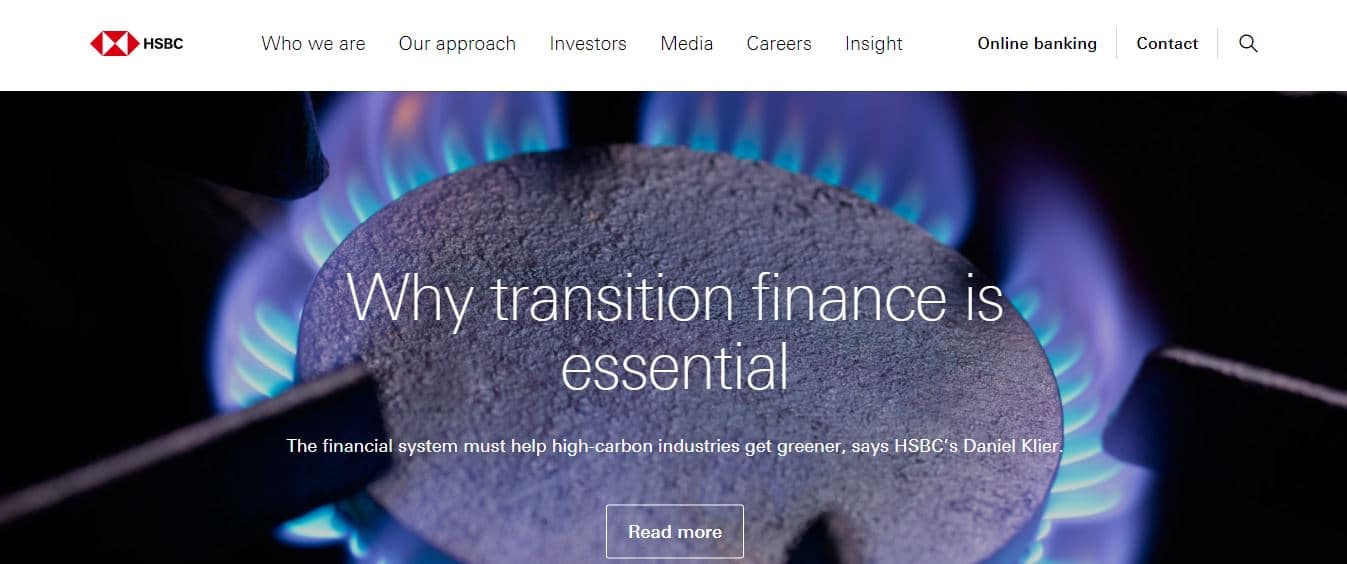You certainly already know the Santander Bank. It is the subsidiary in Brazil of the Spanish bank of the same name. Headquartered in the city of São Paulo, the Brazilian operation began operating in 1982. The Brazilian Santander is also an integral part of the Santander Group, which is the largest financial conglomerate in the Eurozone.
Santander is currently the third largest private bank in the Brazilian financial system, with total assets of R$605.3 billion and 31 million customers. Previously, in 1997, Santander announced the purchase of Banco Geral do Comércio. In 1998, it acquired Banco Noroeste SA and in 2000, it purchased the Meridional Conglomerate, formed by the banks Meridional, Bozano and Simonsen, and made its largest acquisition at the time by winning the privatization auction of Banco do Estado de São Paulo with a bid of more than R$7.05 billion.
More recently, in 2019, Santander announced the launch of a microcredit platform. The initiative aims to compete with fintechs and startups in the financial sector. The service will renegotiate debts and grant car insurance, among other services, focusing on individuals and consumer financing.
Want to know more, ask a question or make a complaint? Check below how to contact Santander.
Santander Telephone
The telephone is one of the most practical and quickest ways available to customers and others interested in contacting companies that offer this option. Banco Santander is no exception and offers some numbers through which you can interact with its customer service. Check them out below:
Capitals and metropolitan regions
Those who live in a capital city or metropolitan region can call Santander on the following number: 4004 3535.
Other Locations
Those who live in other regions should contact us by calling: 0800 702 3535.
People with hearing and speech impairments
Those who have a hearing or speech impairment also have a number to contact. If this is your case, call: 0800 723 5007.
Santander Bank Ombudsman
The ombudsman's office is an area provided by companies that has a specific focus on solving problems that have not been resolved by other means of communication. It serves as a last resort for resolution that should only be used when other departments fail to meet your demand.
Santander offers an ombudsman service. The service is available from Monday to Friday, from 8 am to 10 pm, and on Saturdays from 9 am to 2 pm. Except on holidays.
To contact us, call: 0800 726 0322.
The Banco Santander ombudsman is a specific body that exists within the company and plays a very important role.
This is because it is through this sector, the ombudsman's office, that the company can evaluate, identify and monitor the service standard of its staff.
In general, people end up contacting an ombudsman when they have a problem with the company and the regular customer service, unfortunately, cannot resolve the issue.
What is an ombudsman's office for?
Santander's ombudsman, therefore, must listen to its customers' complaints and has the duty to ensure that the demand is always investigated and evaluated in an impartial and fair manner.
Each company defines its own approach and the way the sector operates. Some, for example, end up choosing to outsource this service in order to ensure greater impartiality.
Others choose to select the company's own employees, who are already familiar with the company's values, exchange or return policy, and refund processes.
At Banco Santander's Ombudsman's Office, you can submit compliments, suggestions, requests, reports, complaints and claims.
The interesting thing about the ombudsman is that, in addition to investigating your issue, it also has an effect on the company.
Open Channel
Another option for customers and others interested in speaking to Santander is the Open Channel. This service is dedicated to reporting and clarifying doubts related to inappropriate or unethical conduct. It is confidential and your contact can be anonymous.
Check below how to contact Santander's Open Channel:
Telephone
To communicate with the Open Channel by telephone, call: 0800 282 7374.
If you prefer to use email, you can send your message to the following email address: [email protected].
In Contingency
Those who wish to deal with cases of suspension of online service should contact one of the telephone numbers below:
Capitals and metropolitan regions
If you live in a capital city or metropolitan area, call the number: 4004 3535.
Other Locations
For those who live in other regions, the telephone number available to assist you is: 0800 702 3535.
People with hearing and speech impairments
People with hearing or speech impairments can also contact us to discuss cases of service suspension. Just call: 0800 723 5007.
Complaint to the Central Bank of Brazil

Many users of banking services do not know, but when they have some kind of problem with a bank and the bank does not resolve it through its ombudsman, a very practical and viable alternative is to make a complaint to the Central Bank.
The Central Bank of Brazil is a highly regarded institution and, among other responsibilities, it is responsible for regulating and supervising the national financial system. The institution also currently works to ensure the stability of the purchasing power of money.
In the specific case of Banks, the Central Bank supervises and controls banking institutions, aiming to prevent abuses and other arbitrary acts that may be committed by the country's financial agents.
So if you had a more serious problem with the Bank Santander or any other financial institution and this problem has not been resolved by the ombudsman, you can register your complaint very simply on the Central Bank website.
Once the complaint has been made, the Central Bank will contact the Bank Santander to request information about the complaint made.
In normal situations, the Central Bank takes around 8 to 10 business days to respond to the citizen. However, this period depends largely on how long the bank that was complained about takes to respond.
If your complaint is fair, the Bank will usually reverse its procedure or in some way seek to correct the error made, notifying the Central Bank about this occurrence.
Logically, if your complaint to the Central Bank is unfounded, no action will be taken, as the Central Bank will analyze your case and forward it to the institution, acting in this case as a mediator of the problem.
As previously mentioned, it is very simple to file a complaint with the Central Bank. The entire procedure is carried out online, and it is important that you register an email address to receive notifications each time the process is processed.
Another very important point to remember is the need to have the complaint receipt protocol at the Bank on hand. Have this number on hand as you will need it when making your claims.
It is also important to clarify that the Central Bank will ask you to write a text explaining exactly what happened between you and the bank. At this point, be as detailed as possible, providing the date, time, name of the attendant, what was said, protocol number, etc. Don't leave anything out!
Step by step: making a complaint on the Central Bank website
To initiate the complaint procedure at the Central Bank, you can click here.

As you can see in the image below, you must enter your CPF number and select Complaint against Financial System Institutions.

Solve the Captha and the screen will open for you to fill in the necessary data:
- Choose the name of the Institution
- Select Subject
- Enter your message, stating the complaint you want to make
- Enter the Financial Institution's protocol number

From there, the Central Bank will ask for your email and telephone number, generating the service protocol after that.
With the complaint protocol in hand, as stated above, you just need to wait for the bank's response regarding your complaint.
Questions and Answers about Complaints at the Central Bank
1- Which institutions does the Central Bank supervise?
The Central Bank supervises multiple banks, commercial banks, cooperative banks, investment banks, development banks, exchange banks, savings banks, credit unions, credit, financing and investment companies, real estate credit companies, leasing companies, exchange brokerage companies, securities brokerage companies, securities distribution companies, development agencies, mortgage companies, credit companies for microentrepreneurs and small businesses, payment institutions and consortium administrators.
2- Can I file a complaint against an Institution authorized to operate by the Central Bank?
Yes, complaints may be filed by customers and users of products and services from financial institutions and other institutions authorized to operate by the Central Bank, such as credit unions, payment institutions and consortium administrators, whenever there is evidence of non-compliance with legal and regulatory provisions whose supervision is the responsibility of this Agency.
3- Does a complaint to the Central Bank have the same effects as a lawsuit?
No. The Central Bank acts in the administrative sphere and does not replace legal action. Therefore, if your problem is not resolved by the Central Bank, you can file a lawsuit.
4- Does the Central Bank regulate the waiting time in bank queues?
No. The Central Bank does not regulate waiting times in queues. There are state and municipal laws that address this issue. It is up to consumer protection agencies (Procon, Prodecon, Decon) to provide guidance on this topic.
5- Does the Central Bank set the value of fees charged by banks?
The Central Bank does not determine the amount of fees. However, there are some services that banks must provide free of charge. Subject to the prohibitions, each institution is free to establish the amount of its fees.
Taking Legal Action Against a Bank: Is It Worth It?
Many people wonder whether it is worth taking legal action against a bank. Is it feasible? Is it worth it? To answer this question, first of all, you need to know the extent of your problem with the banking institution.
We know that most of the problems involving customers and banks are issues that are easier to resolve through a complaint to the bank's own ombudsman or even by making a statement to the Central Bank.
However, when the situation is more complicated and involves larger amounts, the customer may consider filing a lawsuit against the financial institution, knowing that this will be a last resort, after exhausting administrative avenues for resolving the conflict.
One option for those who were unable to resolve the issue through conventional means is to file a lawsuit in Small Claims Court in your region, which is the competent body to process cases of up to 40 minimum wages. It is important to emphasize that, for cases of less than 20 minimum wages, it is not mandatory to appoint a lawyer.
Another advantage of JEFS that cannot be forgotten is the absence of legal costs for litigants, that is, you will not need to pay anything to file a lawsuit against the Bank.
To be successful in a case before the Small Claims Court, it is important that you gather as many documents as possible, such as contracts, bank statements, emails, collection letters, proof of payment, etc.
Another fundamental thing in this type of process is to have all the details of the Bank against which you are going to file the lawsuit: address, telephone number, CNPJ, name of the manager, among other important information so that the justice officials can locate the financial agent.
And as previously mentioned, there is no need to hire a lawyer, although if you have the means, this is highly recommended, considering that in more complex cases the assistance of a specialist will be essential for you to be successful in the dispute.
Therefore, now that you know all the details about how to file a lawsuit against a bank, it is up to you to decide whether or not this is viable, whether it is the best solution or not.
Other forms of complaint against a Bank
If you don't know, nowadays there are several ways to complain and show your dissatisfaction with banking services. This means that you are not obliged to accept any type of illegality on the part of any agent of the country's financial system.
Unfortunately, nowadays, all sorts of irregularities occur in banking transactions. People are paying excessive interest or fees, others have their credit ratings listed without owing a single cent. In short, there are all sorts of complaints.
If, like many Brazilians, you have complaints about banking services or customer service, you should know that society has increasingly created mechanisms to give voice to dissatisfied people. Here we will give you just a few examples of how you can complain about abusive practices by banks.
You can choose between some of the complaint methods or you can even use all of them until your problem is finally resolved. Remember that first of all it is important to try to resolve the problem with the bank you have complaints about and only after that you can take other actions to protect your rights.
Complain here website
The Reclame Aqui website is a private platform, but it has helped many people solve their problems with financial institutions such as the Bank Santander for example, that has a good reputation on the platform.

Reclame Aqui works as follows: the person who wants to make a complaint registers on the website, makes their statement in writing, being able to present any documents they deem necessary and completes the request by generating a protocol.
After this, the Reclame Aqui website itself contacts the company complained about, which normally informs its version of the facts and often solves the customer's problem.
Most companies respond very well to complaints made on this platform, while others don't respond at all. But in general, it's worth trying to make a complaint on the website. Access here to learn about the service.
Procon
A well-known body among Brazilians is Procon, always remembered for its fight to defend consumers. Procon is linked to the States and serves the entire population when it comes to consumer protection codes.
If you have easy access to this body, a complaint to Procon may be a viable alternative. It is known that financial institutions as a whole, especially banks, often have serious problems with their customers, and Procon may be the defender of the weaker side at this time.
Another advantage of seeking out Procon to file a complaint is the fact that it is a public service, that is, completely free, in which the consumer can have a strong arm in their defense against the abuse of power by large corporations.
Important Notice
The Achei Celular website is an independent project that has no connection with Banco Santander or government consumer protection entities. The purpose of this article was only to inform about the phone number of the Santander Bank and other forms of contact with the institution, for informational purposes only. If you have any complaints to make, look for the companies' official channels and under no circumstances leave any personal data in the comments field.



